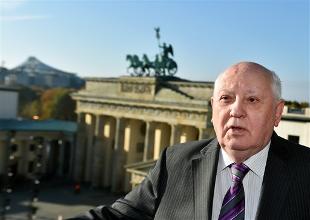Share
09 December 2014 Gorbachev would not have been informed that Yeltsin was on his way to Belarus for a bilateral meeting with the Belarusian leader, who at his request would also have invited the Ukrainian president to attend the summit.
The trilateral agreement on the dissolution of the USSR would later be signed in secret.
The most extremist, according to Gorbachev, proved to be the Ukrainians, who claimed their independence, claiming that the Soviet Union had exhausted its potential.
The former president has given a new meaning to the abbreviation CSI, the Commonwealth of Independent States (SNG in Russian) which he 'decodes' as an acronym for "a means to annoy Gorbachev" (Sposob Nasolit Gorbachovu), which has always been opposed to the liquidation of the Soviet Union.
The Red Army supported the Russian, Ukrainian and Belarusian presidents, demanding the dissolution of the USSR. Former Soviet Defense Minister Marshal Shaposhnikov told the future Nobel laureate that the armed forces were in favor of liquidation The Union of Soviet Socialist Republics.
Then Gorbachev took a step back to avoid the bloodbath in a country which, according to his claims, was on the verge of civil war.
The man from Perestroika also blamed the then leader and current secretary of the Russian Communist Party, Ghennadiy Ziuganov, who has always accused Gorbachev of the disintegration of the USSR and asked to judge him for high treason
or, instead, for having been one of the supporters of the end of the Soviet Union.
The Belovezhije agreements provided for the ratification of the Treaty on the Constitution of the CIS by national parliaments.
The Communists had a majority in the Supreme Council of Russia and could have blocked ratification.
At the request of then Supreme Council President Ruslan Khasbulatov (one of the leaders of the failed coup against President Yeltsin in October 1993), Russian Communist leader Ziuganov allegedly pressured Communist deputies to vote in favor of liquidation of the USSR .
Consequently, the Communists voted unanimously, dismissing the outcome of the referendum in March 1991, when 78% voted in favor of the preservation of the Soviet Union.
It is curious to remember that the only deputy of the Belarusian parliament who voted against the liquidation of the USSR was the current president of Belarus Aleksandr Lukascenko.
The Belarusian leader is still proud of his gesture 23 years ago.

